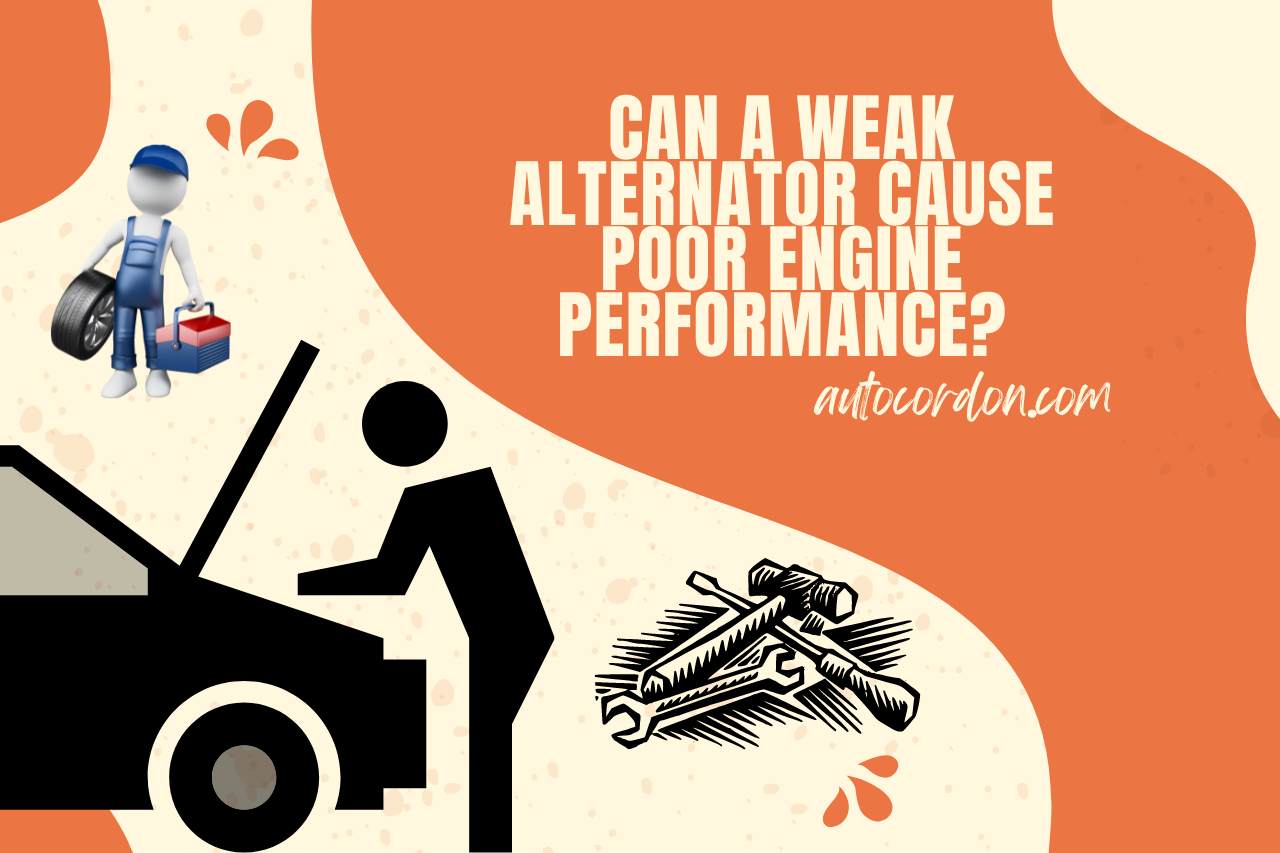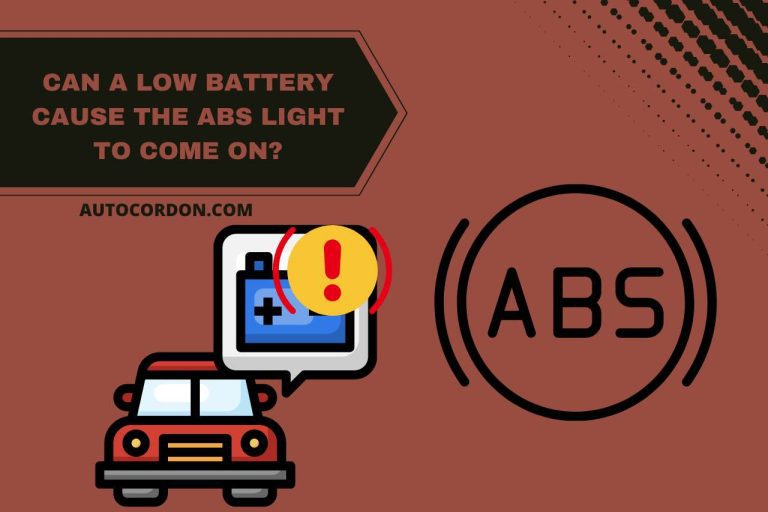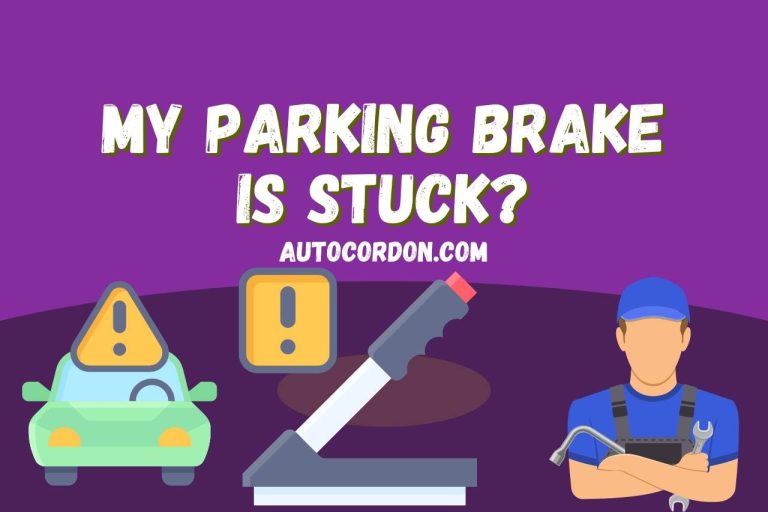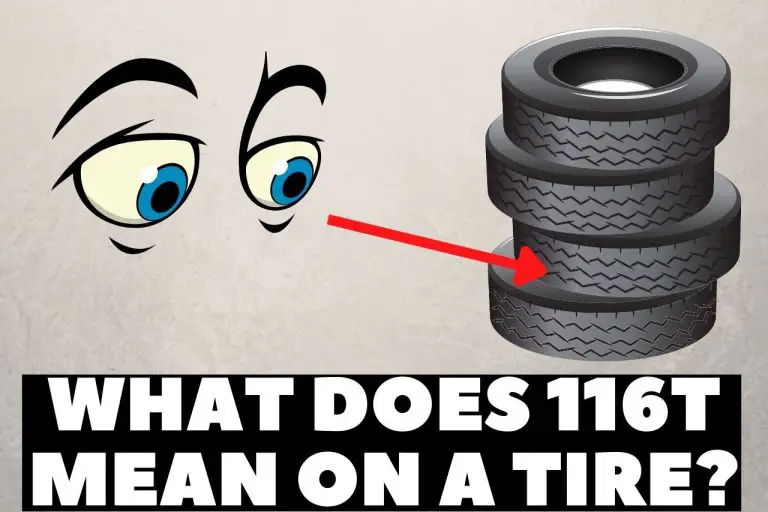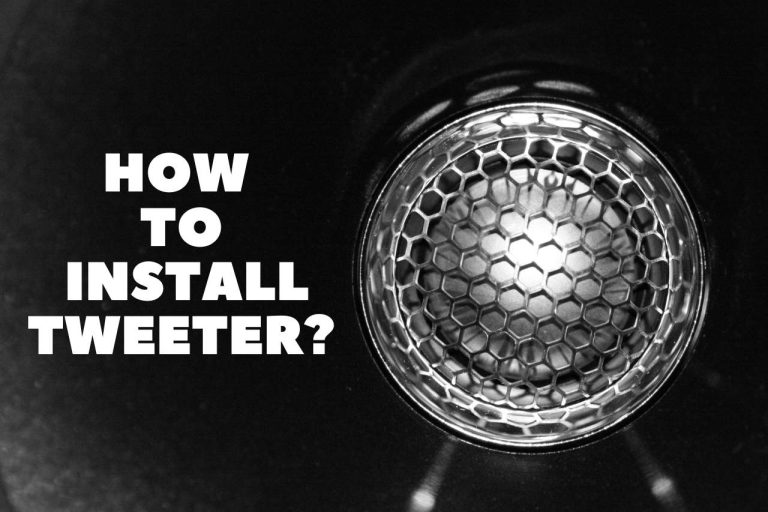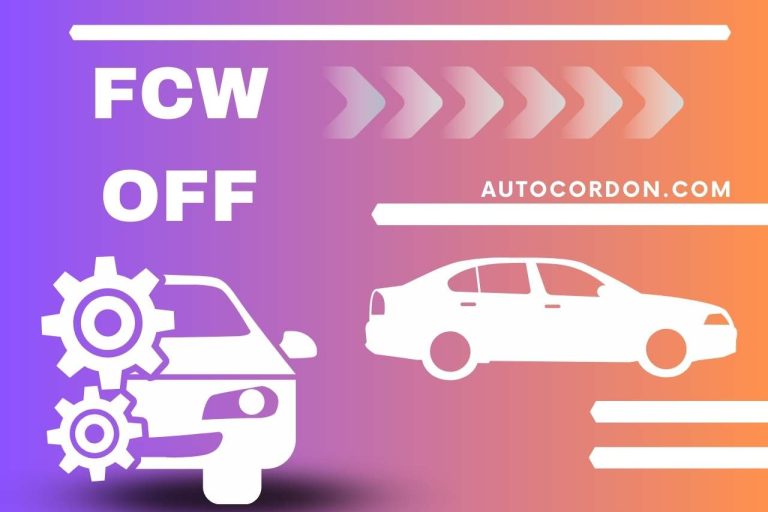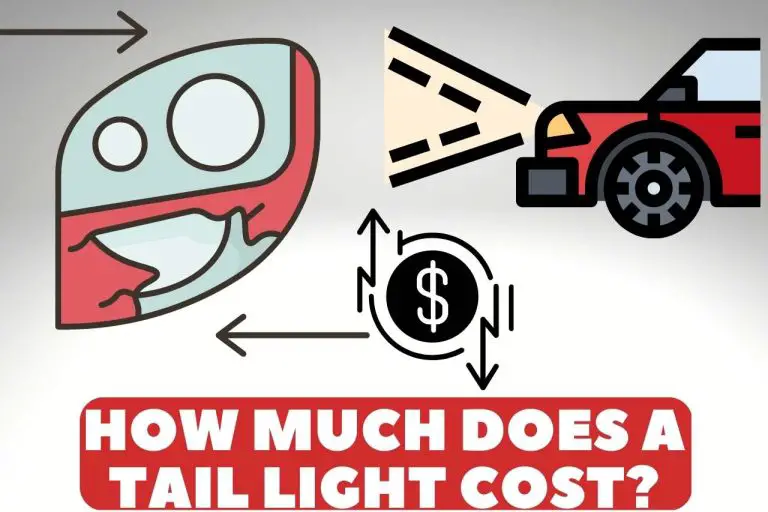Can a Weak Alternator Cause Poor Engine Performance? Impacts!
Can a weak alternator cause poor engine performance?” is a question that underscores the intricate connection between a vehicle’s components. As an essential part of the charging system, an alternator plays a pivotal role in not just powering electrical systems but also influencing engine performance. This guide delves into the significance of this relationship, exploring how a weak alternator can indeed lead to lackluster engine performance. By understanding this interplay, you can proactively address issues, ensure optimal engine functionality, and maintain a smooth driving experience.
What is an Alternator, and What does It Do?
An alternator transforms mechanical energy into electrical energy, a crucial element of a car’s electrical system.
It is in charge of powering the electrical systems of an automobile and recharging the battery. An alternator generates an electric charge by rotating a rotor in a series of stator windings while being powered by a belt pulley.
To protect the electrical components, the voltage regulator of the inverter ensures that the output voltage is consistent.
The primary purpose of an alternator is to provide electricity to a car’s electrical systems, including the radio, air conditioning, and headlights.
To guarantee that there will be sufficient energy to start the engine the following time the vehicle is utilized, it recharges the battery while the vehicle is in motion.
The best performance of a vehicle depends on the alternator working correctly. The battery will ultimately run out of power if the alternator malfunctions, cutting off the electrical and engine systems.
What are the Signs of a Weak Alternator?
Signs of a weak alternator encompass various indicators that signal its diminished performance. These signs include dimming headlights, fluctuating electrical issues, warning lights illuminating on the dashboard, unusual noises, and difficulty starting the engine. Recognizing these symptoms is crucial to addressing alternator problems promptly and ensuring the overall health of your vehicle’s electrical system.
The engine starting slowly or having trouble starting is another indication of a weak alternator. The alternator provides the power needed to operate the engine, and a weak alternator cannot supply enough power to start the engine promptly.
The battery warning and check engine lights are just two examples of warning lights that drivers might notice on the dashboard. These warning lights show that the alternator isn’t functioning correctly and not giving the car’s electrical systems adequate power.
A poor alternator may occasionally also make a whining or grinding noise. It suggests that the alternator’s bearings are deteriorating. To prevent additional harm to the vehicle’s electrical system, it is critical to have the alternator evaluated and serviced by a qualified technician if any of these symptoms are present.
How does a Weak Alternator Affect Engine Performance?
An alternator is a vital component in a vehicle’s electrical system that converts mechanical energy into electrical energy, primarily to power the car’s various systems and recharge its battery.
Originating from the term “alternate,” an alternator produces alternating current (AC). This AC is subsequently converted into direct current (DC) to match the car’s needs. While driving, the engine powers the alternator, letting its rotor spin within a magnetic field, generating electrical energy. This electricity not only illuminates your headlights and tunes into your radio but also fuels the air conditioning system, ensuring a comfortable journey.
One essential element ensuring this seamless operation is the voltage regulator. Nested within the alternator, this component guarantees that the electrical output remains consistent, safeguarding the sensitive electronics in the car. It’s this precise regulation that protects your car’s accessories, from the multimedia system to the dashboard lights.
Moreover, while your vehicle cruises the streets, the alternator diligently recharges the battery, ensuring it’s primed and ready for the next ignition. It’s a testament to the vehicle’s engineering that we often overlook this component, but its efficiency is directly tied to the car’s performance. A faltering alternator can compromise both the electrical and engine systems, emphasizing its pivotal role.
Can a Weak Alternator Damage Other Parts of the Engine?
Yes, a weak alternator can indeed damage other parts of the engine by affecting various components, leading to costly repairs or replacements.
A vehicle’s alternator is like the heart of its electrical ecosystem. When it’s weak, it can’t pump enough energy, making the entire system vulnerable. The first casualty is often the battery. If the alternator isn’t providing the required charge, the battery depletes quickly. But the repercussions don’t stop there.
When the alternator falters, the voltage it supplies to the engine’s electrical systems diminishes. This can be likened to a domino effect – one component starts to malfunction, setting off a chain reaction of issues. For example, the fuel injector, which relies on electrical signals to function accurately, can misbehave due to a weakened alternator. This malfunction leads to erratic fuel supply, causing the engine to perform inefficiently. Over time, the engine’s internal components, which are accustomed to a precise balance, can suffer wear and damage.
Another vital system affected is the ignition system. An unstable charge from a weak alternator can lead to incomplete combustion. When combustion isn’t efficient, not only does it reduce the engine’s performance, but it also puts undue stress on the engine, increasing the risk of damage.
Furthermore, the alternator’s inefficiencies can overwork and overheat the battery, pushing it beyond its optimal operating conditions. This overheating can be a double-edged sword, affecting not just the battery but also nearby electrical components, including the starter. The resulting damage can lead to substantial financial outlays for repairs and replacements.
How is a Weak Alternator Diagnosed and Repaired?
Diagnosing and repairing a weak alternator involves a series of checks by a professional technician, followed by either repair of specific components or replacement of the entire unit.
The alternator is pivotal for the car’s electrical health, much like the heart in our body. A misfiring heart can lead to significant health problems, similarly, a failing alternator can compromise a car’s performance. It’s essential to diagnose and rectify the issue at the earliest.
When a technician begins the diagnostic process, visual inspection stands paramount. They’ll look for visible signs of wear, corrosion, or damage, much like a doctor would look for obvious symptoms. Next comes the technical part: using a voltmeter to measure the alternator’s voltage output. The ideal range for a healthy alternator lies between 13.5 and 14.5 volts. Any deviation from this range is a red flag.
Post-diagnosis, the repair phase begins. Sometimes, it’s a matter of tweaking a few components. The voltage regulator, for instance, is like the brain of the alternator, controlling its output. Faulty bearings, on the other hand, can make the alternator noisy or inefficient. Addressing these individual concerns can often restore the alternator to its prime.
Yet, there are occasions when patchwork won’t suffice. That’s when the decision arises: a new alternator or a remanufactured one? While the former offers the allure of brand-new components and often a warranty, the latter is no less reliable. Remanufactured alternators have been meticulously tested and restored to meet, if not exceed, the manufacturer’s specifications. Often, the choice boils down to factors such as budget constraints, immediate availability, and personal preference.
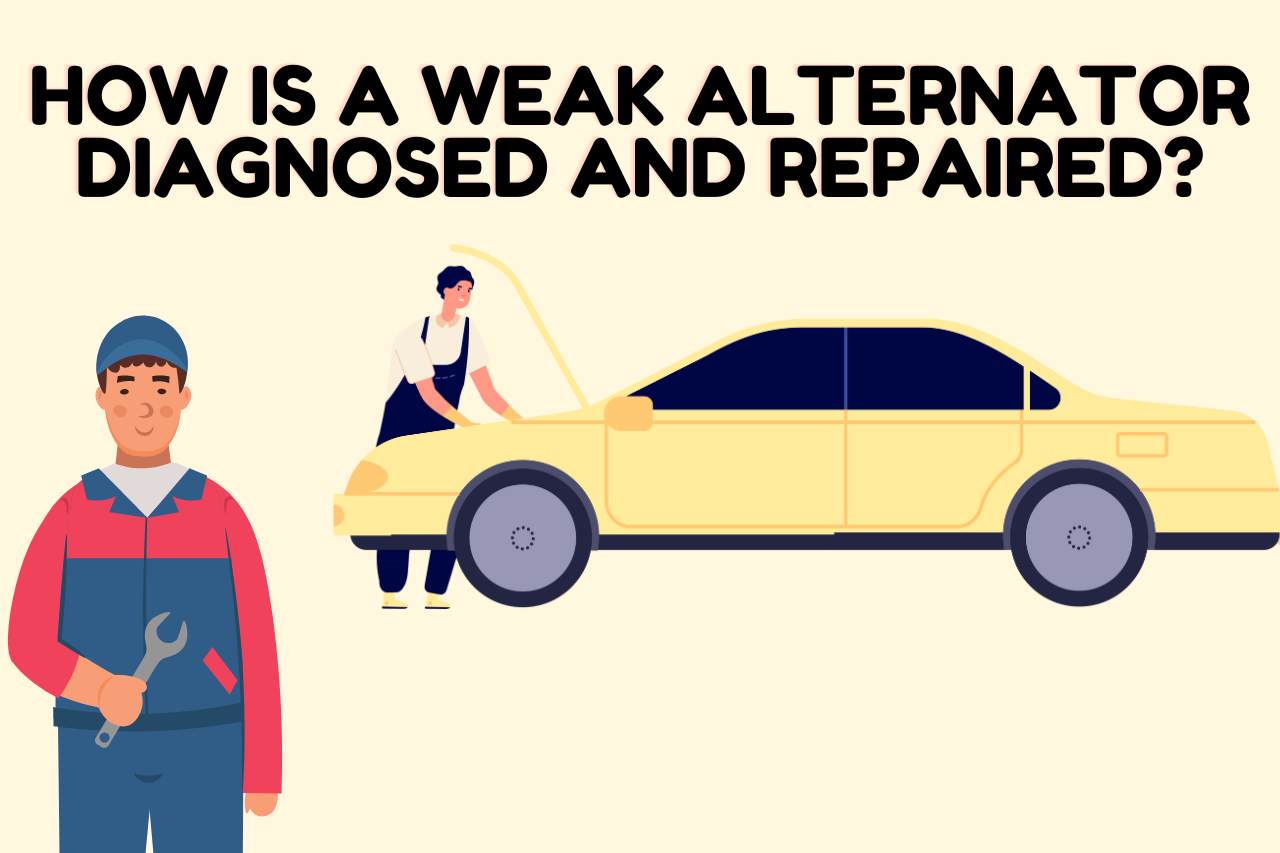
- Diagnosis:
- Visual Inspection: Checking for overt signs of wear or damage.
- Voltage Measurement: Using a voltmeter to ensure the output is between 13.5 and 14.5 volts.
- Repair Options:
- Component Repair: Fixing specific parts like voltage regulators or bearings.
- Alternator Replacement: Choosing between a brand-new or a remanufactured unit.
The journey from diagnosis to repair is intricate, emphasizing the importance of expert hands and informed choices. Proper care ensures that your vehicle remains a reliable companion on the road.
Does a Bad Alternator Cause Poor Acceleration?
Yes, a malfunctioning alternator can directly lead to poor acceleration, impacting the vehicle’s performance.
The alternator is not just a component; it’s the powerhouse of your car’s electrical system. Just as athletes rely on a consistent energy supply to perform at their peak, a car relies on its alternator for optimal performance.
A dwindling alternator does more than just dimming your headlights. When its efficiency drops, it has a cascading effect on various critical systems. The electrical pulse that tells the fuel injectors when to spray, or the ignition system when to fire, depends on the alternator. When these pulses become erratic due to a faltering alternator, the result is uneven fuel delivery and incomplete combustion. It’s akin to trying to run a marathon with an inconsistent oxygen supply; you simply won’t achieve peak performance.
Furthermore, a weak alternator can cause disturbances in the ignition system, leading to engine misfires. These misfires manifest as jerks or hesitations when you press the accelerator. It’s not just about comfort but also safety. Being unable to accelerate promptly, especially on highways, can put you in dangerous situations.
Can an Alternator Increase Performance?
No, an alternator’s primary function isn’t to enhance engine performance, but it ensures the car’s electrical systems run optimally, which indirectly supports the vehicle’s overall efficiency.
To understand the alternator’s indirect influence on performance, imagine the alternator as the heart of a car’s electrical system. Just like a healthy heart ensures that every part of the human body receives essential nutrients, an efficient alternator guarantees that every electrical component of the vehicle gets the required power. From ignition systems to fuel injectors, these components rely heavily on the consistent power supply that only a well-functioning alternator can provide.
So, while the alternator might not be the horsepower-boosting turbocharger of the vehicle, its role in maintaining the vitality of the electrical systems cannot be understated. It ensures that systems like the electronic fuel injection, ignition coils, and sensors, which directly influence engine performance, function without a hitch.
FAQ
Does alternator affect power?
Yes, the alternator does affect power, especially in vehicles. The alternator is responsible for generating electrical power to charge the vehicle’s battery and supply the electrical needs of the car. When the alternator is working, it places a load on the engine, which uses some of the engine’s horsepower. If the alternator is faulty or overworking due to a weak battery or other electrical issues, it can draw more power from the engine, potentially affecting its performance.
Does alternator affect RPM?
Yes, the alternator can have an affect on RPM, especially in vehicles. When the alternator is under a heavy load, it demands more power from the engine. This increased demand can cause the engine to work harder, potentially leading to a noticeable change in RPM. However, modern vehicles have sophisticated systems in place to manage and mitigate such effects, so in everyday scenarios, the change in RPM due to the alternator is typically minimal. But, if the alternator is malfunctioning or there are other electrical issues, the RPM fluctuations might become more noticeable.
Does alternator affect shifting?
The alternator’s primary function is to supply power to the electrical components and charge the battery. It shouldn’t directly affect the shifting of gears in a vehicle. However, if the alternator is failing and not providing adequate power, it could potentially influence the function of electronically controlled transmission systems, causing erratic shifting or other transmission issues. That said, other components, like the transmission control module, play a more direct role in shifting, and issues there would be more likely culprits for shifting problems. If someone suspects their shifting issues are related to the alternator, it’s crucial to get both systems checked by a professional.
Watch this one,
Video Credits – Scotty Kilmer
You May Also Like
- How to Bypass Voltage Regulator on an Alternator? Easy!! Find Out
- The Troubleshooting Guide to Car Revving in Park
- Why is My Radiator Fan So Loud? (Here’s Why)

Madusha is a writer for Autocordon.com and a seasoned mechanic with a profound passion for all things automotive, particularly the intricate world of vehicle transmissions. With years of hands-on experience in the garage, Madusha’s expertise extends from routine maintenance to complex repair solutions. In the bustling auto repair community, Madusha is known not only for precision and skill but also for an enthusiast’s zeal for cars that transcends the workshop.

